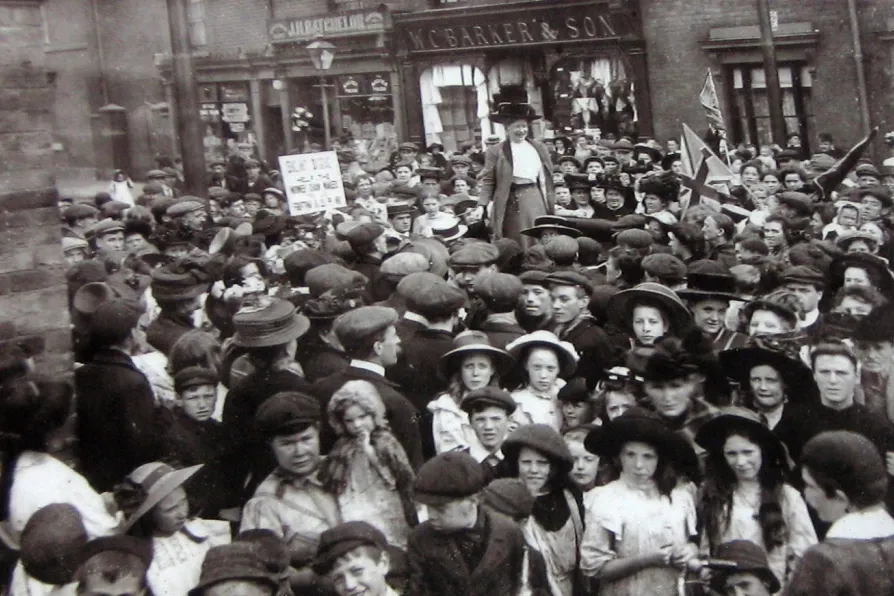RAMZY BAROUD offers six reasons why Netanyahu is prolonging conflict in the Middle East
TUC Midlands marks 20 years of celebrating the 1910 chainmakers’ victory with a festival that connects historical lessons to modern struggles — because working-class history should inspire action, not just nostalgia, writes STUART RICHARDS


FOR 20 years, TUC Midlands has brought together trade unions and community groups to host the Women Chainmakers’ Festival. The festival was inspired by the 800 women in the Black Country who marched under the banner of the National Federation of Women Workers.
As the name suggests, they made chains, mostly in their backyards as piecework. They took on exploitative bosses and went on strike for a living wage in 1910. In a strangely unique twist for the major labour movement moments we commemorate, the women chainmakers won. You can learn more about the story of the chainmakers at the festival website — www.womenchainmakers.org.uk
Like many similar union-led events, the festival has become a fixed point for local trade union activists. But I think it’s important to ask the question — why is there a festival about a dispute that took place 115 years ago?
The answer gives us a useful insight into not only how we approach working-class history, but also why.
If you look back at the times you have seen representations of working-class history, it’s likely that it will fall within one of two broad approaches. The first, and most common, is the “period drama snapshot.” There will be descriptions of poverty and dire conditions. Working people will be portrayed as passive victims, toiling, suffering and dying. While you’ll hear about the middle-class reformers who campaigned for change on specific issues, you’ll be lucky to find any significant mentions of the working-class people or movements who stood together and fought for change. There is a trade union-shaped hole in these kinds of representations.
Without any real attempt to learn from our history by linking the issues faced by working people in the past to the issues we face now, the emphasis ends up being on the “progress” that has been made.
The first approach can certainly be entertaining, but if the big take away is just — hey, things are better because we’ve now got washing machines, then it’s little more.
This is why the Women Chainmakers’ Festival takes the second approach. Whether it’s the innovative way the strikers used the press, the building of collective strength by workers in what was essentially the gig economy or even the wider social context of gender exclusion that forced women to create their own union, there are so many lessons to be learnt from the story of the women chainmakers. The events around the strike of 1910 make a compelling narrative, but also give us a platform to look at how we address the ongoing threads of discrimination and exploitation that continue to the present.
The Women Chainmakers’ Festival is the only annual trade union-run festival inspired by the successes of working-class women. It is both a celebration of their memory and an opportunity to come together to learn from our history and to tackle the issues facing women workers.
The Women Chainmakers’ Festival will take place from 11am on Saturday June 28. You can find the festival at Mary Macarthur Gardens in Cradley Heath, B64 5AP.
Stuart Richards is TUC Midlands regional secretary.

Two inspring books — that’s your New Year’s musing from me on January 2 2026

ROS SITWELL reports from the Morning Star conference on ‘Race, Sex and Class Liberation’ last weekend












